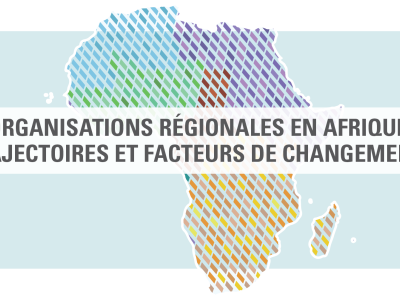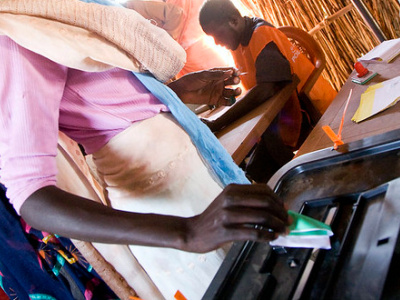
A tale of several stories: EU-North Africa relations revisited
EU-North Africa relations have long suffered from excessive bilateralism and securitisation. It is time to acknowledge the multidimensionality of the challenges facing North African countries and affecting Europe by fostering new forms of engagement with a stronger African component.
Geography and history link North Africa and Europe. North Africa’s long relationship with the European continent began well before the colonial period. It is embodied most recently by a string of initiatives, agreements and cooperation frameworks between the European Union (EU) and North African countries. These have made this part of the world particularly porous to European influences. Meanwhile, North Africa continues to be highly exposed to the rising geopolitical tensions spilling over from the Middle East, and has turned it into a hybrid, loose and at times conflictual space at Europe’s doorstep.
The seven years since the Arab uprisings have brought significant uncertainty for North Africa. Algeria’s political future – and its future stability – is uncertain due to presidential succession risks. Tunisia remains fragile, despite hopes that it will consolidate its post-2011 democratic gains. Libya’s conflict has dragged on, with very little prospect of resolution in the short to medium term. This poses extremely high security and migration risks to both the region and Europe. Morocco, for long the largest beneficiary of EU loans and aid packages through the European Neighbourhood Instrument (ENI) thanks to its ‘advanced status’, has recently seen a cooling of the EU’s engagement. This has precipitated a suspension of political dialogue between the two parties over issues linked to the Western Sahara dispute. Egypt is ‘too big to fail’ for the EU, but at the same time it is going through a steady refashioning of authoritarian governance different from the previous incarnation in being more unstable than the (apparent) stability of the pre-2011 regime. Europe, for its part, continues to labour under an intensified sense of insecurity, linked mainly to terrorism and migration. This is compounded by the thousands of North Africans (including those born in Europe) who had flocked to the Islamic State in Iraq and Syria between 2014 and 2017 – often returning more radicalised to their origin countries or continuing on to Europe.
Stability first
Against this backdrop, the latest round of revisions of the European Neighbourhood Policy (ENP) in 2015 highlighted the need for ‘re-prioritisation’ focusing on ‘stabilisation’ to stem the spread of security challenges and address the root causes of instability. Another concept driving the EU’s engagement with its neighbourhood, including the southern region, is ‘diversification’. Thus, the specific challenges and opportunities each partner country presents to the EU are approached individually using incentive-based mechanisms or ‘more for more’.
On paper, the EU structures its relations with its neighbours to the south in three generic categories: ‘political and security affairs’, ‘economic and financial affairs’ and ‘social and human affairs’. While security, including migration, is the linchpin of the EU’s approach to its southern neighbours, questions remain about whether EU policy in the region provides a good balance between security and stability, on the one hand, and political, economic and social reforms, on the other.
The growing securitisation of EU-North Africa relations is not a new trend. In the early 2000s, transatlantic debate on the War on Terror spurred a securitised approach to cooperation. This was enshrined in the ENP in 2003-2004. At that time, the EU’s responses and offerings were in line with the needs and expectations of the largely authoritarian regimes in power in the different countries of North Africa. The focus on security and commercial interests can also be understood as a minimum common denominator relatively easily agreed among the EU member states at the supra-national level. Each country then cultivated its own particularistic interests through bilateral ties. The southern European member states, Italy and France in primis, took the lead in promoting commercial relations and energy-related cooperation, thus becoming among the key interlocutors of the elites in North African countries decades after the end of colonialism.
Notwithstanding the need for a strategic approach to a region so geographically close to the EU – as the ENP suggests – the mid-2000s marked a re-orientation towards bilateralism and away from the region-building approach that had mildly characterised the Euro-Mediterranean Partnership since 1995. North Africa has become the terrain on which this shift is most visible and produced the most daunting effects. First, in many respects North Africa has been enveloped by a new scramble among the EU member states for control and preferential relations. Second, North Africa has borne the brunt of conflict and the fragmentation of different countries while witnessing the definitive collapse of the endogenous experiment of regionalism at the sub-regional level with the Arab Maghreb Union (AMU). In this context of heightened securitisation and bilateralism, the Arab uprisings and their repercussions did not alter the basic approach of the EU.
What future for EU-North Africa relations?
The future of EU-North Africa relations will depend on all the parties’ abilities to strengthen the opportunities and minimize the risks. First, there is an increasing risk of spillover of instability, chaos and conflicts emanating from the Middle East – including the exogenous influence of radical interpretations of Islam, such as Wahhabism. A failure to resolve the conflict in Libya and stabilise the country will bring even greater mingling of Middle Eastern or Gulf regional powers in North Africa. This will hold back development and hamper the potential for increased intra-regional cooperation. Some have suggested that the threat of North African countries being dragged into the spiralling Middle Eastern conflicts might ultimately stimulate greater cooperation among countries such as Algeria, Morocco and Tunisia. However, regional cooperation projects in reaction to external threats would nonetheless need to be accompanied by concrete initiatives at the political level. This is where the greatest obstacles to cooperation persist, particularly between Algeria and Morocco over the Western Sahara issue.
Second, although the challenges facing North African countries differ, an overarching theme is undeniably human security in its manifold dimensions (thus also including security aspects as narrowly defined). Security challenges, however, cannot be eradicated solely by the threat or use of force, as a form of punishment or deterrent. Instead, education, inclusive development, women’s empowerment and civic participation should be at the core of any EU strategy targeting North Africa. This means that the EU needs to better match its instruments vis-à-vis the North African countries to the current challenges. So far, this has not yet been done, as too much attention has been paid to hard security challenges, terrorism and radicalisation as the only prisms through which North Africa is perceived.
The EU also needs to mainstream even more the goal of resilience – at both the state and the societal level – in its cooperation with North African countries. This would advance implementation of one of the key dimensions of the EU Global Strategy. In addition, all EU initiatives and policies towards North Africa should emphasise two aspects: intra-regional cooperation within North Africa and the African context in which North Africa is fully embedded. Promoting intra-regional cooperation requires that bilateral relations be accompanied by a certain degree of region-building. Geometries for this could vary, as it does not need to relate only to the North African countries as a group. Also, it could be approached from the grassroots level involving, for example, regional, municipal or civil society actors. Greater cognisance of the African context is not in competition with the EU’s approach towards North Africa and would foster new links and connections across the African continent while empowering sub-regional and continent-wide institutions (such as the African Union). These may represent the needs of the people better than the individual national governments do.
This approach could also help the EU rethink the rationale, goals and formats of its policies towards North Africa, in particular according to the logic of co-development and having in mind broader global issues. In this regard, the EU should stop considering North Africa as only its backyard, as in the past. Though the (mostly bilateral) links between the EU and the North African countries remain strong, it is important to acknowledge that globalisation, the spread of economic opportunities and conflicts have stimulated North African countries to diversify their interlocutors and partners, mostly looking southwards. At the same time, the challenges confronting both North Africa and the EU – and which link the two – can be addressed only in cooperation (or at least in coordination) with other regional and global players. Many have a stake in the region, especially the Gulf countries, Russia, the United States and increasingly China and India. It is time for the EU to clarify, first and foremost to itself, what kind of new chapter it is prepared to write in the long tale of EU-North Africa relations.
About the author
Silvia Colombo, Head of the Mediterranean and Middle East Programme at the Istituto Affari Internazionali (IAI), Rome, s.colombo@iai.it.

Just published! Political and Institutional Transition in North Africa. Egypt and Tunisia in Comparative Perspective, Routledge, 2018
Read the full magazine issue








